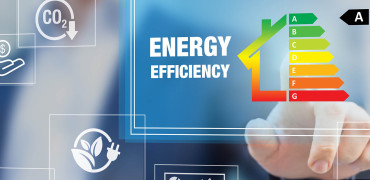As more new and existing buildings decarbonise their heating, electric systems such as chillers need service and maintenance to support their more significant roles in supplying heating and hot water.
Many non-residential buildings are transitioning to all-electric solutions to decrease the UK’s reliance on traditional boilers for heating and hot water. This shift aims to remove gas and oil from these structures to diminish their carbon footprint and significantly reduce their operational carbon emissions.
This change places a greater responsibility on equipment like chillers to provide cooling, heating, and hot water. Thus, the importance of service and maintenance escalates to ensure these systems remain operational and efficient. Collaborating with a maintenance partner knowledgeable in decarbonisation drivers can be instrumental in achieving low-carbon objectives.
A key point made by the consultation is that ‘doing nothing’ is not an option
The end of gas
The move away from fossil fuel heating systems is closer than ever. The Future Buildings Standard Consultation (launched in December 2023 and closing in March 2024) focuses on reducing CO2 emissions from the UK’s non-domestic building stock – in line with the national Net Zero 2050 target.
The first step in achieving this is to ‘transition away from using fossil fuels for heat and power by ensuring that new buildings are ‘net zero ready’. This means they use electric or other renewable energy sources to achieve zero carbon emissions when the UK electric grid is fully decarbonised.
A key point made by the consultation is that ‘doing nothing’, which means simply maintaining the requirements of the 2021 Building Regulations, is not an option.
The government realises that even though the use of low-carbon heating systems is growing, it is at a slow pace – too slow for that Net Zero 2050 goal.
The drive to net zero
Since new non-domestic buildings will be used for decades, any constructed now with fossil fuel heating systems (e.g. gas or oil boilers) will produce emissions for years. This would add to the existing building stock that already uses fossil fuel heating systems – making it impossible to achieve Net Zero 2050 without an even more significant national retrofit programme.
The focus is, therefore, on ensuring that new buildings are equipped with low-carbon heating, or if they don’t have it installed from the start, they can be retrofitted very quickly and cost-effectively.
The World Green Building Council recognises the importance of electrification: “The electrification of buildings can reduce the environmental impacts of running a building significantly. If a building is fully electrified, it removes all fossil fuel connections, reducing emissions. It will also reduce the reliance on traditional energy sources, such as oil and gas, as electrified buildings move towards being sourced from renewable energy.”
Although we may think about technology such as heat pumps for electric heating and hot water, they are not the only solution. Indeed, for many large non-dwellings, they may not be a practical solution. This is particularly true for retrofit projects where buildings are not designed to make the most of heat pumps. Instead, the emphasis could be on providing heating, hot water and cooling via chiller systems, for example.
Keeping regular
For facilities management teams, the electrification of heat means that equipment such as chillers become even more central to delivering comfortable and safe environments for occupants. Regular maintenance is vital to optimise these systems for performance and energy efficiency.
Mitsubishi Electric’s Service & Maintenance team works closely with clients to deliver robust chiller performance and energy efficiency. Services such as Remote Monitoring are also ideal for larger estates such as universities and hospitals, and it gives the FM team another set of eyes on equipment so that any deviation from performance levels can be quickly dealt with – avoiding emergency call-outs or shut-downs.
With the electrification of buildings on the near horizon for all buildings, it’s vital to work with maintenance professionals who understand the ‘Whys’ of decarbonisation and electrification.
At Mitsubishi Electric, we have been working with clients for decades to help them meet the requirements of regulations and their own carbon-reduction goals. We understand the imperatives behind these changes and can help to build maintenance strategies that deliver on today’s multi-faceted goals for building managers.
Kris Swiderski is Head of Service and Maintenance




